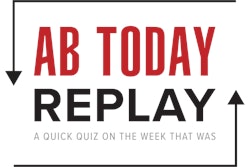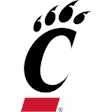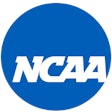|
Copyright 2013 The Columbus Dispatch All Rights Reserved The Columbus Dispatch (Ohio) |
|
September 15, 2013 Sunday
|
|
NEWS; Pg. 1A
|
|
2005 words
|
| Ohio State /NCAA Compliance; The new sheriff; Jason Singleton is back on campus to make sure OSU athletes and fans follow NCAA rules |
|
Encarnacion Pyle, THE COLUMBUS DISPATCH
|
|
He's part goodwill ambassador, part sleuth and part NCAA rule enforcer. Three hours before each Ohio State University home football game, former OSU basketball captain Jason Singleton, a member of the Buckeyes' 1999 Final Four team, chats with the crew guarding the players entrance. Dressed in an OSU ball cap and polo shirt, Singleton looks like any other guy in the football program -- except for maybe his height: 6-foot-6 and a head above almost everyone else. But he plays a special role. As one of the newest compliance officers to join Ohio State, he is to gain the trust of the coaches and players, teach them the rules and bring down the hammer if they don't follow his advice. Since the tattoos-for-memorabilia scandal three years ago, Ohio State has doubled its athletic compliance staff to 15 and increased the annual budget by 88 percent to $1.2 million to avoid any further NCAA sanctions such as the ban that kept the undefeated Buckeyes from a bowl game last year. Ohio State also has created a centralized compliance office that is to uphold ethics throughout the school, in athletics, the medical center and research. And it has signed a three-year, $360,500 contract with JumpForward, a Chicago-based company that helps college athletic departments comply with NCAA rules on tickets, recruiting, phone calls and social-media sites such as athletes' Facebook and Twitter accounts. "The best that we can do is demonstrate our commitment, adopt the best policies and protect the kids and institution as best as we can. But there will always be risks," OSU athletic director Gene Smith said. Many other schools, including Penn State, are taking similar measures as the NCAA has put increasing pressure on campuses to clean up their programs. With 36 varsity sports, more than 1,000 athletes and some very zealous fans and boosters, Ohio State has to be vigilant, said Chad Hawley, associate commissioner of compliance for the Big Ten Conference. "Ohio State has always had a very robust compliance program," Hawley said. "Instead of seeing the NCAA case as a wake-up call, I think it gave the university reason to tweak the good things they were already doing." But all the people and money in the world might not help Ohio State avoid future problems, others said. "An institution like Ohio State could create the absolute best athletic-compliance operation imaginable, yet a single person could violate a rule," said Dutch Baughman, the executive director of the Division 1-A Athletic Directors Association. And the school would still pay the price, even if the rule-breaker leaves. Enforcing NCAA rules is "an almost impossible job," said David Ridpath, an associate professor of sports administration at Ohio University. Collegiate sports have grown into a billion-dollar industry, he said, and schools and coaches aren't going to follow NCAA rules if they get in the way of winning and making money. That's especially true if school officials think they are being asked to do something more than their rivals are, said Ridpath, who lost his job as Marshall University's compliance director in 1999 when the NCAA found football players working bogus jobs for boosters. Singleton, 37, said he's been preparing his whole life for this challenge. After graduating from Ohio State, the Detroit native played professionally for three years in various leagues. He went back to school, earned a master's degree and went into education, following in the footsteps of his mother, a retired principal. He taught kindergarten and managed a program that provides tutors in low-performing schools. He then took a job as an anti-money-laundering specialist for a bank so he could pay for an engagement ring for the woman who is now his wife. He later felt drawn back to sports, even though by that time NCAA violations had caused Ohio State to forfeit his team's Final Four record and many other victories from the 1999-2002 basketball seasons. "They can take away your banner, but they'll never erase the memories," Singleton said. In 2007, he beat out about 600 other applicants for an NCAA job aimed at improving the quality of youth basketball and mentoring elite high-school athletes to stay in school. Three years later, Singleton moved to the NCAA's basketball-enforcement staff, where he learned firsthand how the quest for big money, bragging rights and power can ruin the games he loves. "I don't know that there are many guys like him," coach Urban Meyer said. "He's a great person, and he has a really unique skill set." Singleton can't believe his own good luck. Some of his friends remain baffled over how he got the job: As a player, he sweet talked his way into getting a faculty parking tag and a long-distance telephone code the players used to charge calls to Ohio State, which they later had to repay. At the time, Ohio State had only one compliance officer. "We were mischievous and got into trouble all the time," he said, a shy smile spreading across his face. Those insights into the temptations and pressures facing student athletes help make Singleton suited for the position, said Doug Archie, OSU's associate athletic director for compliance. "Jason has what I call street cred because he knows and has a relationship with the players," Archie said. Yet he's always two steps ahead of the players, Archie said, and "knows exactly what to tell them not to do because he's probably already done it or seen it and can say why it's a bad idea." After stopping at the players entrance the morning of the Buffalo game, Singleton drops in on the 71 high-school athletes filing into the recruit room at the stadium. As many as 200 recruits and their parents and coaches can show up for one of the hot-ticket Big Ten conference games against Michigan, Penn State or Wisconsin, he says. Singleton makes sure the guard at the locker-room door knows not to let any recruits pass. Only the coaching staff and players are allowed to enter. In 2011, OSU banned longtime booster Bobby DiGeronimo from associating with the athletic department after the NCAA said he received special access to players -- including in the locker room -- and gave them $17,000 in improper benefits. Ohio State's failure to monitor DiGeronimo resulted is a stiffer slap by the NCAA. Singleton signs a few autographs for people who recognize him from his playing days and then heads over to the Blackwell hotel. State troopers hold back mobs of fans lined up, hooting and hollering, as they wait for their favorite players to emerge. Singleton walks in just as the players and coaches circle around for "quick cals," a calisthenics pre-game drill. "I'll be disappointed if we aren't the best offensive team," Meyer screams. "Let's go, boys, 1-2-3." Singleton high-fives quarterback Braxton Miller and pats linebacker Ryan Shazier on the shoulder before trailing the players to the skull session in St. John Arena, where they're greeted with thunderous applause. He keeps fans away from the players and keeps the recruits from joining the procession. At the San Diego State game, he and OSU usher Bradley Griffin led four-star, New Jersey athlete Noah Brown and his brother down the stairs of the Blackwell before the players to avoid violating any rules. Brown committed to the Buckeyes' class of 2014 two days after his Columbus visit. Later, Singleton watches as the players' families and friends start lining up at the ticket office. Each player has four tickets to give out, and Singleton must ensure that none is going to agents, boosters, recruits or others who are banned from receiving them. Before the tattoo scandal, Ohio State randomly checked about 10 percent of the names players provided. Now, officials call every person a player thinks he might invite to a game -- as many as 4,000 people -- before the season starts. This year, a half-dozen officials and volunteers spent nearly two weeks calling five hours a day. "We try to pin down who they are and how they know the student," said Jim Johnston, who has been an OSU usher for a quarter-century and has helped screen players' guests for the past five years. Singleton makes a point to stop at a sports-auction table, saying he doesn't want a crisis at Ohio State over autographs such as the one Texas A&M faced this year with quarterback Johnny Manziel. As large as its athletic programs are, Ohio State is going to have violations, Singleton said. "If you go looking hard enough, you're going to find something." Ohio State self-reports more NCAA violations than most other schools because it wants to nip problems before they become major violations, said psychology professor John Bruno, OSU's faculty athletic representative. In 2012 and so far in 2013, Ohio State reported 85 violations for all sports. One secondary violation: Coach Meyer said "good luck" to a recruit. Another: Assistant coach Mike Vrabel used smokeless tobacco on the sideline. Singleton pops by the field to make sure the recruits, who can go on the sidelines while the players are warming up, are past the goal post, away from the players. Before the game begins, they must take their seats. When not at games, Singleton and the other compliance officers spend a lot of time teaching students, coaches and others about the rules on such topics as agents, extra benefits, sports memorabilia and sexual violence. They go to local barber shops, bars, restaurants, tattoo parlors and other businesses where players hang out to make sure no one is giving athletes money, special discounts or gifts. On the second day of school, they went up and down High Street. They even travel to away games with the team, Archie said. They check out any jobs the players hold to make sure those are real. And twice a month, they walk the gated parking lot next to the football practice facility to make sure players are driving cars that they can afford and have registered with Ohio State. Since the tattoo scandal, players have had to document car purchases to prove they aren't getting inappropriate deals. The compliance office also takes photos of every player's car and vehicle registration, sets time limits on loaner cars and talks to the car dealers. The NCAA has not sanctioned Ohio State over athletes' use of cars, but in the past, the school's own internal auditors repeatedly found problems with athletes' car registrations: What was listed on a form filed with the athletic department did not match what was parked in campus lots. A 2011 Dispatch investigation found that some athletes were stopped for traffic violations while driving vehicles on loan from car dealers and that dozens of players and their families had purchased cars from the same used-car salesman. After the games, fans crowd behind the gate at the players entrance holding game programs, ball caps and footballs, hoping to score autographs. Singleton scans the crowd for autograph hounds -- people who bring big bags of helmets, jerseys and footballs they plan to sell on eBay and other sites. To keep from being detected, many send children up to the players to ask for their signatures. The compliance officers discourage the players from signing autographs and tell them to personalize their messages whenever possible, to keep them from going up for sale. For the past two years, they've also been handing out autograph cards with pictures of the high-profile players and a list of the NCAA rules on memorabilia sales. Although many of Ohio State's most die-hard fans understand the reasons for the changes, not everyone likes them. "These stupid autograph parasites have ruined half my fun," said Robert Phillips, 46, of Lima, a self-described super fan who says he finds it harder to persuade the players to sign his game program than ever before. But it doesn't keep him from trying, as he begged Miller for his signature. Notoriously shy about signing autographs after games, Miller jumped into a campus police officer's car, ignoring all the people crying out his name, for a ride to his car in the football practice-facility lot. @EncarnitaPyle |
|
Photo
(1) Chris Russell / Dispatch Game day is just another work day for Jason Singleton and other compliance officers in the Ohio State athletic department. (2) Wide receiver Chris Fields signs a fan's program after the San Diego State game under the watchful eye of Doug Archie, Ohio State associate athletic director for compliance. |
|
September 15, 2013
|
Terms and Conditions Privacy Policy



































